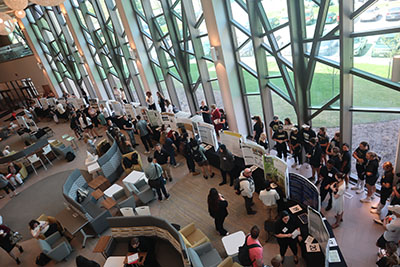Holistic Collegiate Advising and it Effects on Student Retention
Student Type
Graduate
College Affiliation
College of Education and Human Services
Department
Educational Leadership (Higher Education Admin.)
Submission Type
Oral Presentation
Abstract
Holistic advising has been desired in student affairs since the early part of the Twentieth Century. In this recent qualitative case study, advising professionals from a midwestern community college were surveyed and interviewed about implementation of a holistic advising model with the stated intent to improve student retention and graduation rates. The study focused on three measures: satisfaction of professional development, perceived student satisfaction of the holistic advising model, and need for improvements to the model.
Results showed 85% of participants indicated professional development to be “exceptional” or “good,” with desired changes regarding training timeframes and how development opportunities are promoted. 100% of participants indicated students seemed satisfied with the model, with many indicating the model seemed helpful and convenient. Participants suggested improvements could be made through increased departmental collaboration and additional staffing. These outcomes demonstrate the model’s overall success and may allow other institutions to pursue similar advising models.
Recommended Citation
Ross, Colten, "Holistic Collegiate Advising and it Effects on Student Retention" (2023). 2023 Student Academic Showcase. 4.
https://digitalcommons.lindenwood.edu/src_2023/Oral_Presentations/Session2/4
Holistic Collegiate Advising and it Effects on Student Retention
Holistic advising has been desired in student affairs since the early part of the Twentieth Century. In this recent qualitative case study, advising professionals from a midwestern community college were surveyed and interviewed about implementation of a holistic advising model with the stated intent to improve student retention and graduation rates. The study focused on three measures: satisfaction of professional development, perceived student satisfaction of the holistic advising model, and need for improvements to the model.
Results showed 85% of participants indicated professional development to be “exceptional” or “good,” with desired changes regarding training timeframes and how development opportunities are promoted. 100% of participants indicated students seemed satisfied with the model, with many indicating the model seemed helpful and convenient. Participants suggested improvements could be made through increased departmental collaboration and additional staffing. These outcomes demonstrate the model’s overall success and may allow other institutions to pursue similar advising models.



Comments
Thank you for your consideration.